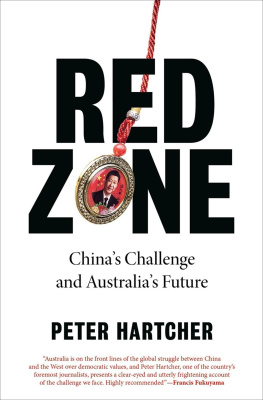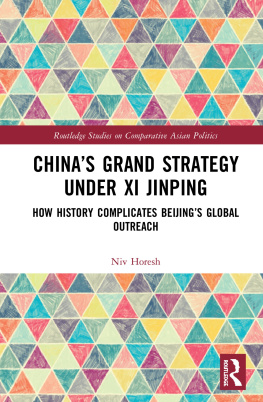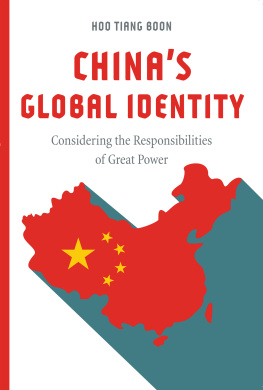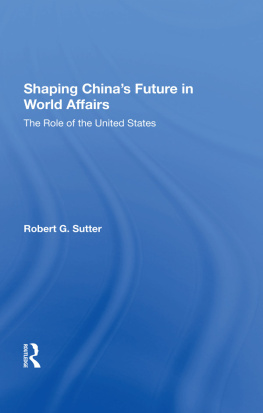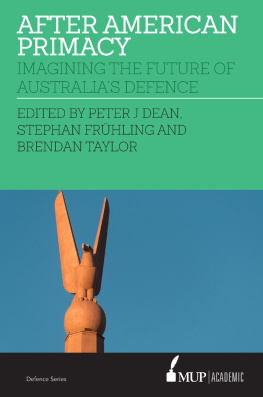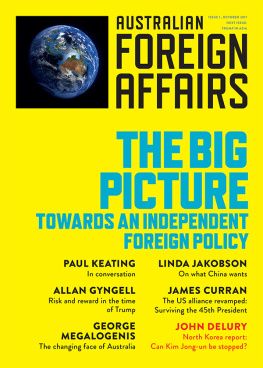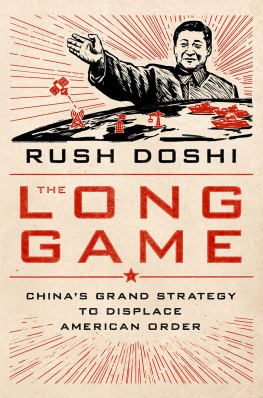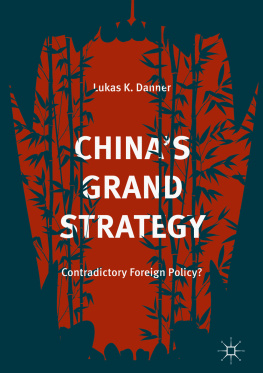How did it get like this? In this thoroughly researched and argued book, Geoff Raby draws on his personal experiences and academic background to produce the answers many have been looking for, and to propose some ways forward. In essence, he argues that Australia should deepen its engagement with China and develop an independent foreign policy suited to our regional location. In these days of crisis, his rational argument is sorely needed.
Jocelyn Chey AM has held diplomatic posts in China and Hong Kong
Raby is right. AustraliaChina relations are in a deep hole. If you find yourself in a hole, stop digging, says a wise adage. This book offers a wise and thoughtful strategy for reversing course. Future generations of Australians, and indeed Asians, will be grateful to Raby for providing timely advice on how to manage a rising China.
Kishore Mahbubani, Distinguished Fellow at the Asia Research Institute, NUS, author of Has China Won?
The most hard-headed, informed and useful extended discussion of ascendant China in our world since the freeze in AustraliaChina relations began. Rabys unsentimental look at how the world seems from Beijing, why the Chinese government behaves as it does, its weaknesses and vulnerabilities including the paucity of its soft power, and its emergence at the head of a new bounded order in a new multilateral globe, is a virtuoso masterclass in what is happening to our world and guide to how Australian diplomacy and statecraft can be marshalled to meet it.
Stephen FitzGerald, former Australian Ambassador to China
CHINAS GRAND STRATEGY AND AUSTRALIAS FUTURE IN THE NEW GLOBAL ORDER
CHINAS GRAND STRATEGY AND AUSTRALIAS FUTURE IN THE NEW GLOBAL ORDER
GEOFF RABY

MELBOURNE UNIVERSITY PRESS
An imprint of Melbourne University Publishing Limited
Level 1, 715 Swanston Street, Carlton, Victoria 3053, Australia
www.mup.com.au

First published 2020
Text Geoff Raby, 2020
Design and typography Melbourne University Publishing Limited, 2020
This book is copyright. Apart from any use permitted under the Copyright Act 1968 and subsequent amendments, no part may be reproduced, stored in a retrieval system or transmitted by any means or process whatsoever without the prior written permission of the publishers.
Every attempt has been made to locate the copyright holders for material quoted in this book. Any person or organisation that may have been overlooked or misattributed may contact the publisher.
Cover design by Philip Campbell Design
Typeset in 12/15pt Bembo by Cannon Typesetting
Printed in Australia by McPhersons Printing Group

9780522874945 (paperback)
9780522874952 (ebook)
This book is dedicated to COVID-19, without which it would not have been finished; to Grace, who endured it all; to Helena, who survived to see it; to my mother, who passed 100 waiting for it and is still going; and to little Alana, who is the light.
CONTENTS
AUTHORS NOTE
This book had its origins in Monash Universitys Richard Larkins Oration, which I delivered in August 2012. It was exactly one year after I concluded my four-and-a-half-year term as Australian ambassador to China, and after I resigned from government service following twenty-seven years working mainly on Australian foreign and trade policy, much of which was on China.
At the time of the oration, the subjects of Chinas rise, its security threats to Australia and its challenge to the US pre-eminence in East Asia were just emerging as hot topics of public discussion. During president Barack Obamas visit to Australia in November 2011, while standing next to a gushing prime minister Julia Gillard, hed announced the establishment of a US Marine base near Darwin. The previous day, breaching normal protocols and good manners, hed used his speech to the joint houses of the Australian Parliament to attack China and reveal for the first time his new foreign policy doctrine: the Asian Pivot.
Hugh White in 2010 published what has turned out to be a prescient and hence seminal book on the strategic challenges of Chinas rise. In The China Choice, he argued that soon the US would need to decide between accommodating Chinas rise and, in order to avoid war, ceding strategic space to China and ultimately hegemony in East Asia; or choosing to push back and seek to contain China. The implications of this for Australia were massive, not least as China had by then become Australias biggest trading partner, and this dependence would only grow. As a realist in foreign and strategic policy, White argued for the US to begin sharing power with China.
The torrent of invective, bile and ludicrous charges of appeasement directed at White by some of Australias conservative commentators took the countrys public policy discussion to a new low.
It was against this background that the Larkins Oration was written, and it is probably why the turnout on a cold and damp Melbourne winter evening was unusually large. In the front row was former prime minister Malcolm Fraser. I had not met him before, but I remembered him as minister for the army in the Liberal government during the Vietnam War, a loathed figure among the anti-war student movement. And as leader of the Opposition, he engineered the ouster of prime minister Gough Whitlam by conniving with governor-general John Kerr. One of Whitlams first acts on being elected prime minister in December 1972 was to end Australias involvement in the Vietnam War and recognise the Peoples Republic of China (PRC). These were defining moments in Australias relationship with the US, marking a return to an independent Australian foreign policy.
Over the many years since his time as minister for the army, Fraser had arrived at a view of the US as a country destined for war, driven by its militaryindustrial complexs insatiable appetite for conflict and the corruption of US politics which that involved. Frasers views by the end of his life may have been even more antiwar and more anti-US than those of the student demonstrators during the Vietnam War. His journey had brought him to the Larkins Oration as a stooped, frail figurehe would pass away two-and-a-half years laterand he spoke at length with me afterwards, welcoming what I had said.
Now free after my government service, I tried to make the case for Australia to develop once again an independent foreign policy with respect to Chinas rise, one based on our interests and, equally importantly, on a well-grounded understanding of China. This would involve not only Chinas potential as a security threat as its economy continued to grow, but also a realistic understanding of the constraints China was under and the real limits to its ability to project power and become a global hegemon. The rise of China would not, because it could not, be a re-run of the rise of the US. When viewed from Beijing, my point of reference, the world and the security challenges China faced looked very different than when viewed from Washington or Canberra.
This book has been a work in progress for many years. Over this time, Chinas rise has continued unabated despite its many internal and external challenges. Since 2012, China has found ways to shape the world order other than exercising military powerthough it has been busily accumulating a formidable arsenalto ensure its security and regime survival. In pursuing its grand strategy, it has cumulatively, and by its great weight in the world, changed the world order in its favour. As a consequence, Australia faces difficult foreign policy and security challenges. So far, unfortunately, it has been found wanting. This book addresses these issues.
Next page

